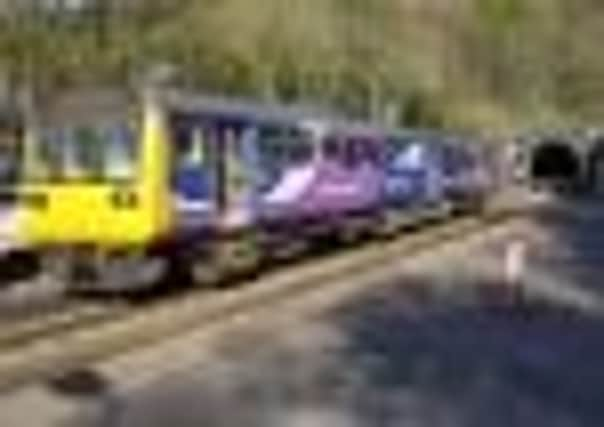Train fare rises could help boost firms’ profits, not reinvestment


Commuters are facing season ticket fare rises of one per cent above RPI inflation – which currently stands at five per cent – before it moves up to RPI plus 3 per cent in January 2013 and January 2014.
The rise next month was due to be three per cent, but this was capped by the Treasury. In West Yorkshire, however, passengers will not see that benefit as they are hit twice, with an additional two per cent annual increase to cover the cost of extra carriages to ease overcrowding.
Advertisement
Hide AdAdvertisement
Hide AdShould inflation remain at current levels, the region’s commuters will be hit by an eight per cent rise followed by back-to-back ten per cent increases by 2014.
Furthermore the National Audit Office (NAO) warned today the funds may not be going into the public spending pot for reinvestment in the transport network.
The NAO said: “A portion of the £759m budget reductions in passenger rail services is dependent on commercial negotiations with train operating companies over the amount of additional revenue raised by increasing the cap on passenger rail fares to three per cent above inflation.
“There is a risk that the benefit of the resulting increase in passenger revenues will not be passed on to taxpayers fully, but will also result in increased train operating company profits.”
Advertisement
Hide AdAdvertisement
Hide AdIts report also found that some of the Government budget reductions in road maintenance and rail may not be financially sustainable.
In a sample of 73 per cent of the Department for Transport’s (DfT) budget, more than half of the reductions, compared with planned spending, were “the result of cuts, delays to new investment or higher fares, rather than new approaches to delivering the same service for less”.
The report added: “There are risks to value for money in decisions taken by the DfT to reduce costs following the 2010 spending review. There is a risk now that a proportion of the budget reductions in road maintenance and rail budgets may not be financially sustainable.
“Budget reductions of £1.23 billion will be made to national and local road maintenance; however, this includes £223m of unspecified efficiencies, risking deterioration in road quality and higher long-term costs to the department or local authorities.”
Advertisement
Hide AdAdvertisement
Hide AdThe NAO said that at the time of the 2010 spending review, the DfT had a “good understanding” of the relationship between costs and benefits regarding specific transport projects such as Crossrail and national road schemes.
However it said: “Information was less good in other areas. The weakest understanding of the relationship between cost and value was in rail, where there was no analysis of the relative benefits and costs of reductions in the scope of rail franchises or increases in passenger rail fares.”
In 2006, Metro, the West Yorkshire Transport Authority, Yorkshire Forward and Northern Rail launched a scheme to provide extra carriages. Yorkshire Forward part-funded the investment, with the rest coming through an above-inflation fare increase for the remainder of Northern’s franchise.
Metro Chairman James Lewis said: “The Government’s additional increase means that West Yorkshire passengers are being punished twice. They have to pay the extra on top of what was agreed but will not benefit proportionally from additional carriages or services, because London and the South East receive four times as much transport funding than the North of England.”
Advertisement
Hide AdAdvertisement
Hide AdA DfT spokesman said: “We have now announced that regulated rail fares will rise by inflation plus one per cent in 2012, not inflation plus 3 per cent as set out at the time of the Spending Review. However, we remain confident that any possible future fares change would yield its full anticipated value to the taxpayer and not to train company profits.”